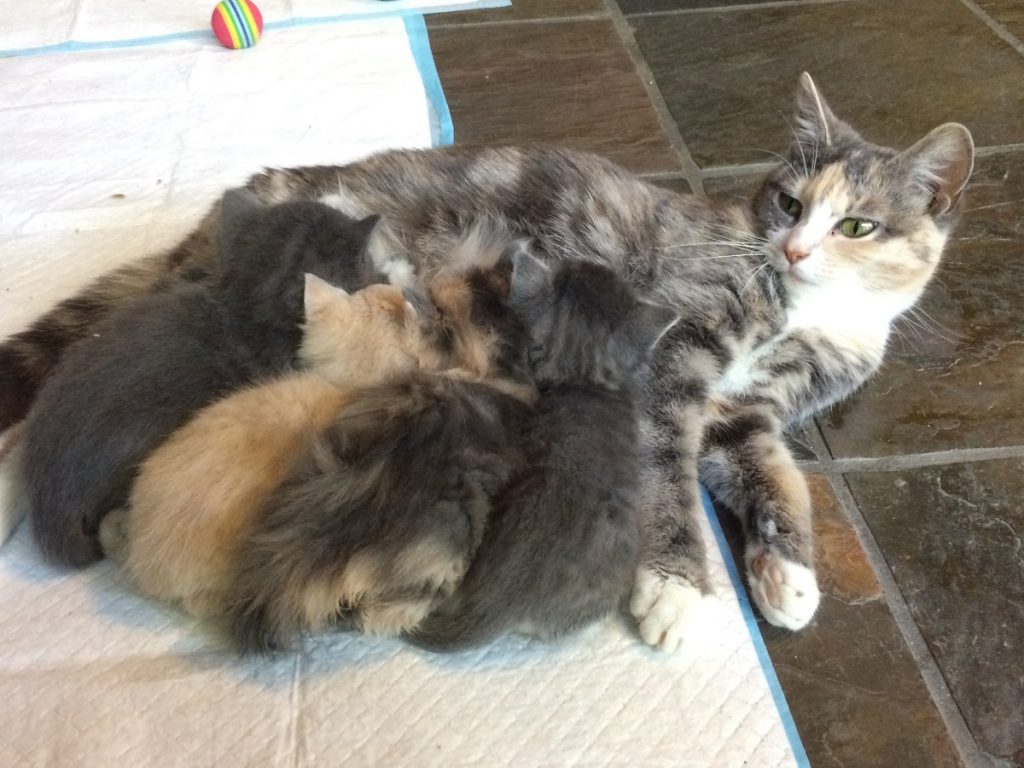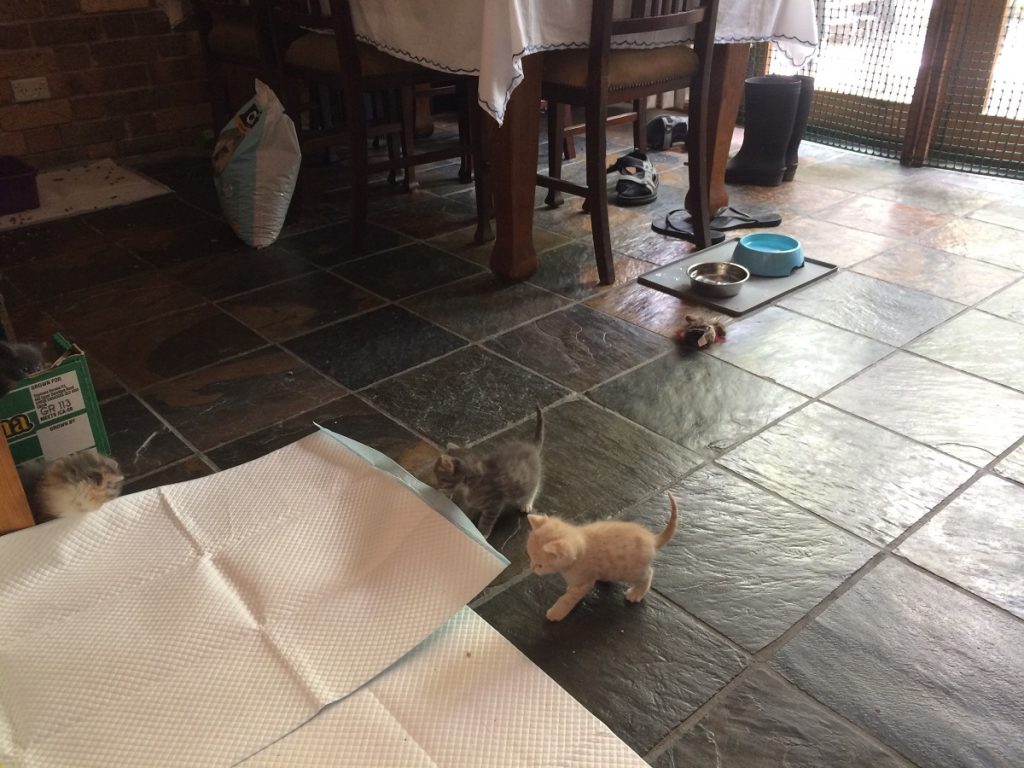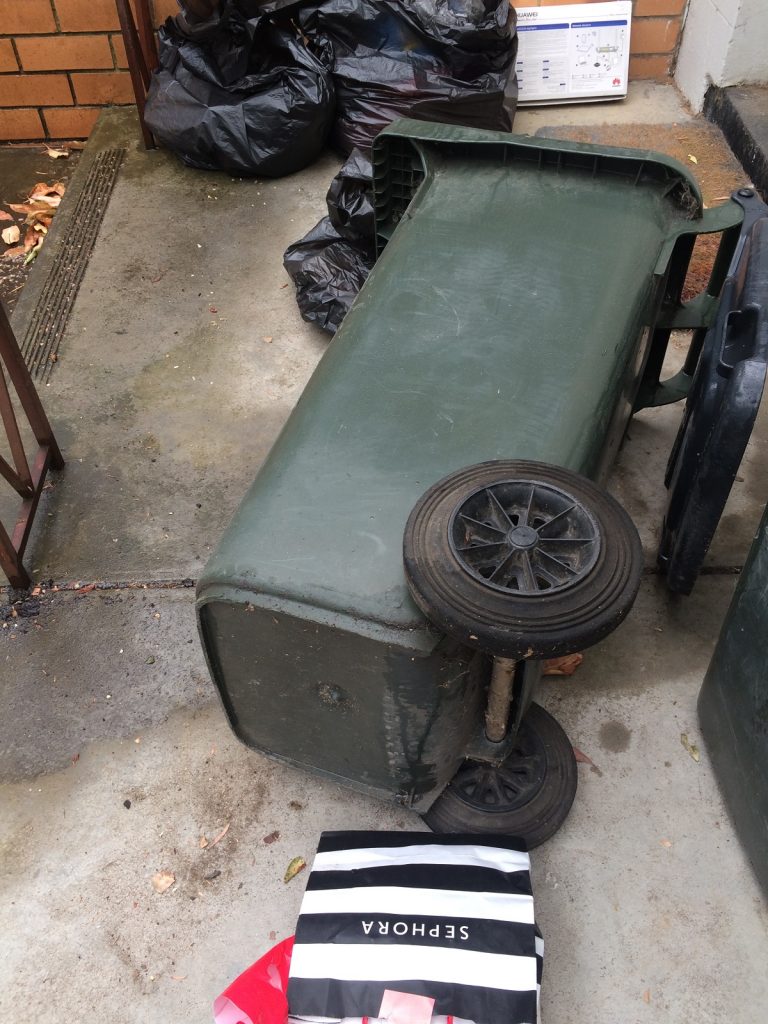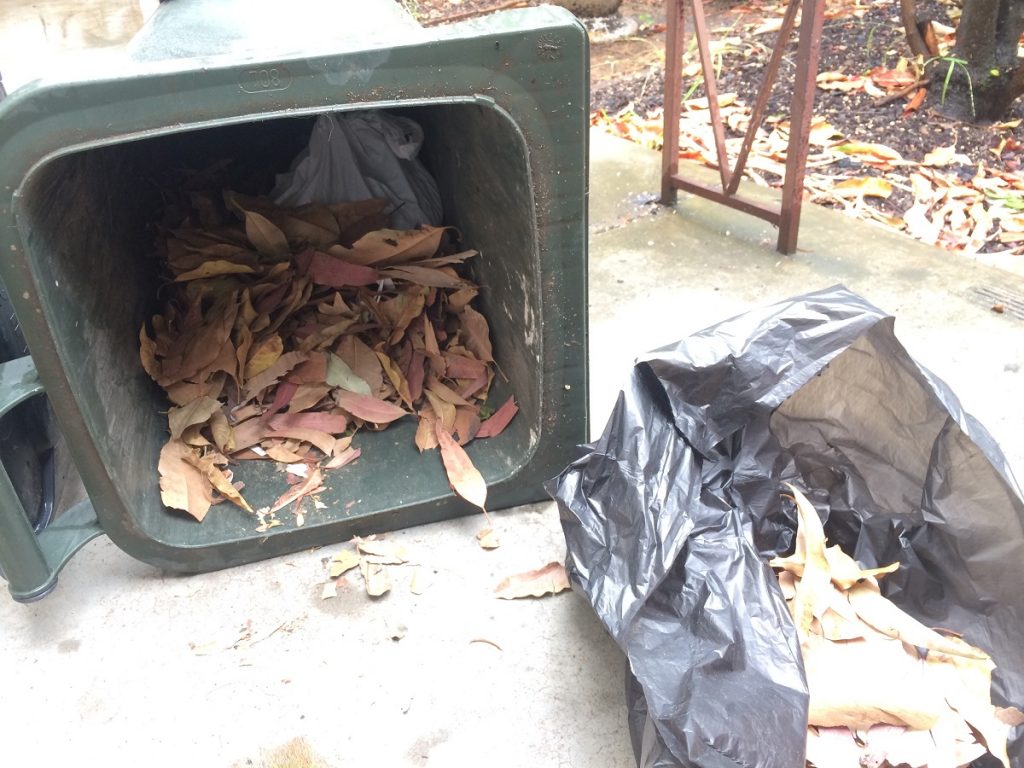The beliefs associated with Stoicism and Stoic philosophy helped me deal with the ‘loss’ of a prized possession: my wedding band. The term loss here appears in scare quotes because there’s something of a twist to this story. Read on…
How my wedding band went missing
In January this year I discovered that my wedding band had gone missing. It normally rested on my bedside table and the suspicion was that its disappearance had something to do with the beautiful kittens that we’d been fostering.

Yes, kittens! A month or so prior we’d decided to foster kittens and a mother cat via the Lost Dogs Home (behind the link is a detailed account of our experience with animal fostering – and see the pic below). It was a very rewarding experience, particularly since, over the course of a few weeks, we observed near-blind fluffballs that could barely walk transform into veritable ratbags that ran and darted and played. Everywhere.
Of course, anyone who knows kittens will tell you that these creatures have two operating modes: mayhem and sleep. Indeed, one of their favourite pursuits was to tear about the house in the morning, through the bedroom, on and off the bed, and onto the bedside table. Loose items are at particular risk of getting knocked around and it was this last fact that had me suspecting that the kittens were responsible for my wedding band’s disappearance.

Basically, I theorised that the kittens had knocked it into a wastepaper basket that I’d emptied into the main bin.
An irreplaceable loss?
The immediate response to the thought of losing my wedding band was understandable: I was confused and a little worried. I began a thorough search of the bedroom and the surrounding carpet and when that yielded no results I resigned myself to the fact that I would have to rummage through a week’s worth of household trash.
There was a lot of rubbish – this was one week after New Year’s Eve – and considering that the bin contained not just a lot of household rubbish but the combined litter and waste from four kittens and an adult cat, you can imagine how unpleasant it was.
There I sat on my front porch, donning disposable gloves, painstakingly sifting through the disgusting load.

Self-doubt assailed me as I began the task. It occurred to me that the wedding band may not even have been lost due to kittens, but rather, due to my own stupidity. Had I simply misplaced it, I thought? Or perhaps I’d lost it through some other foolish way? I am forever misplacing my keys, phone and wallet if I happen to put them down in an irregular spot. With the holidays somewhat disruptive of my routine, it was conceivable that I’d left the wedding band in an unusual spot.
Alas, these thoughts merely increased the anxiety about what I was doing. I agonized even further about whether I was sifting through the rubbish with sufficient vigour.
Picture the scene: a thankless, dirty, tedious job, in full view of my neighbours and passers-by, as I painstakingly sifted through stinking refuse and hundreds of leaves in a vain effort to locate an object with a diameter smaller than a coin’s.

By rights, I should have been worked up. I had no way of knowing if the object of my search did in fact lie at the bottom of the mess. Yet with every handful of sieved refuse, the possibility of finding it evaporated a little more.
Then, when I reached the bottom, not so much scraping the barrel as scratching the bin, I had to resign myself to the fact that I would in fact be without this precious and valuable object.
More than a material possession?
Despite all the trouble, I found myself feeling oddly calm about this otherwise unpleasant situation.
My initial impression was that the wedding band’s loss was a terrible thing and that I ought to do everything I can to retrieve it. These actions, I realised, were things under my control, as compared to the desired result, which was not.
But then, two things occurred to me. The first was that my wedding band was, in the grand scheme of things, a material possession. As attached as I was to it, as much as I felt it represented an essential part of my daily routine, as painful as its loss would be, it ultimately represented symbolic pain and misfortune, rather than actual, physical harm.
Perhaps I would have felt differently if it were a family heirloom. Unlike my commercially purchased ring, which for all its beauty was in many ways replaceable, my wife’s three-generation-old engagement ring was an item with legitimate history and sentimental value (having said that, note that the distinction between ‘new’ and ‘old’ wedding rings is hazy: most wedding rings are, at the time of their manufacture, the product of commercial endeavour, and every old wedding ring was once new).
The other thing that came to mind was that there are far worse things that could have befallen me. Yes, it was distressing. Yes, it was sad. But I retained a roof over my head. I still had my health. And whereas the loss of a wedding band deprived me of an important physical object, the loss of that physical object in itself did not in fact indicate the end of matrimony itself.
In effect, the accidental disappearance of a wedding band was no less indicative of the loss of matrimony than the loss of one’s passport is indicative of the loss of citizenship.
All things are transient
And so, as I sat there, rummaging through the disgusting, smelly bin, picking through mess and leaves, hoping to locate a miniscule metallic object that I knew may not even be at the bottom of the bin, I was reminded of something that is important to Stoic belief.
Namely, that all things are transient. We may not be able to control the ultimate fate of the physical objects to which we attach ourselves, but we can at least attempt to control our response to how we feel about those physical objects. Having scoured the bedroom, the house, and the bin, I accepted the facts as they were and I did my best to get on with things.
It’s also important to not get too attached to possessions. Modern Stoicism and the Stoics say a lot about materialism and how attaching one’s sense of identity and self-worth to physical objects is not generally beneficial. Yes, I figured, this item has wonderful associations, but ultimately my sense of happiness does not depend on it.
The twist
A few days later I heard my wife from down the hallway. In disbelief she exclaimed: “Noooo way!”
Remember how I mentioned kittens tore through the house? How they ran amok on my bedside table?
It turns out they were responsible for the wedding band’s disappearance after all.
My spouse’s exclamation had originated at the other end of the house. To get there from where the wedding band normally resided one had to traverse the width of the master bedroom, travel down a hallway, descend several steps, cover a hard floor, and stand in a kitchen corner where the cat food bowls normally live.
The wedding band had been found. Halfway down the house. The cats had evidently deemed it to be a jolly good toy.
And yet, I’d already prepared myself mentally for its permanent loss. I’d felt no great pain at its disappearance, but neither did I feel much euphoria at its rediscovery. I was pleased, more than anything.
But still. Bloody kittens!